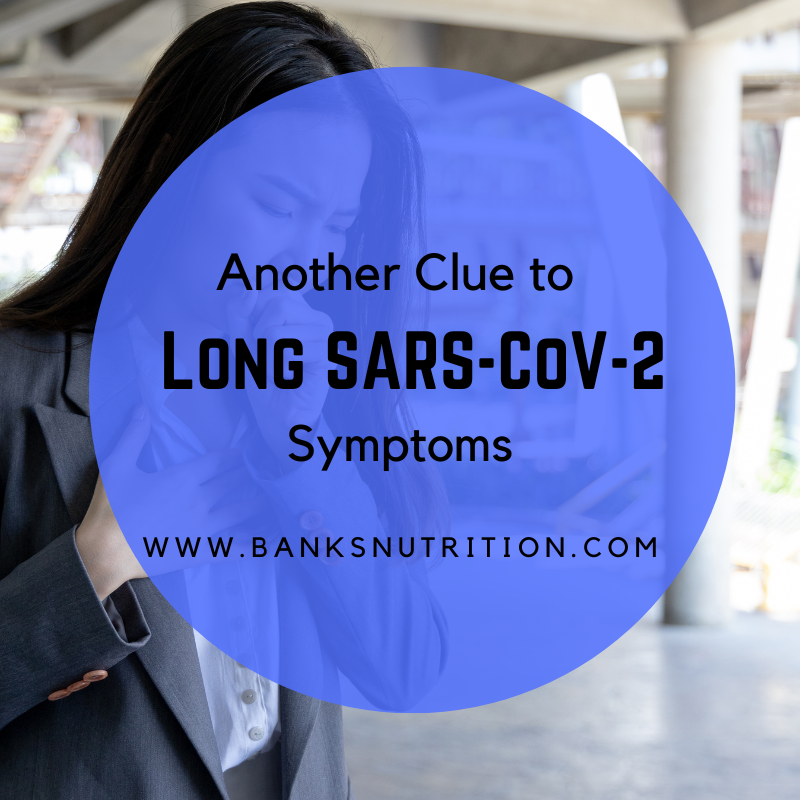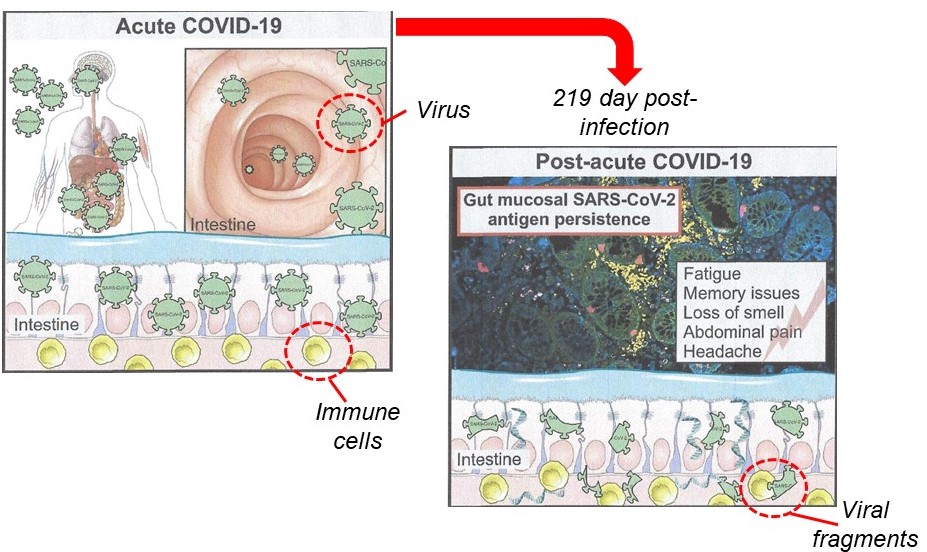
Another Clue to Long SARS-CoV-2 Symptoms
July 19, 2022
In a previous blog we discussed some of the research findings on long SARS-CoV-2 which is a persistence of symptoms after the infection has been resolved. It seems that the inflammatory response which is part of the immune activation against the virus seems not to turn off when it is no longer needed.

That leads to the next question which is why this inflammatory reaction won’t turn off. New research suggests that one of the reasons is that viral fragments called antigens persist in the intestinal lining cells and the resident immune cells in the gut lining. The study looked at viral RNA and protein antigens, and found them in 32 of 46 or 70% of subjects examined. Our immune reactions to viruses do not need the whole virus and occur in response to pieces of the virus called antigens.
The study was done on patients with inflammatory bowel disease who were having endoscopy with biopsy to monitor that disease. The important question is what can be done to help clear these viral fragments from cells. A balanced, well-functioning system has mechanisms to clear infected cells. It is likely that these mechanisms would also help to clear these cells with viral fragments. A careful look at immune system balance seems important as does dampening the inflammatory response as we covered in the prior blog until these cells can be cleared.
We are learning fairly rapidly about why more than 20% of those with acute SARS-CoV-2 are developing long lasting symptoms when the active virus is no longer present. However, there are more questions to be resolved.
Zollner et al. POST-ACUTE COVID-19 IS CHARACTERIZED BY GUT VIRAL ANTIGEN PERSISTENCE IN INFLAMMATORY BOWEL DISEASES. Gastroenterology (2022), doi: https://doi.org/10.1053/j.gastro.2022.04.037